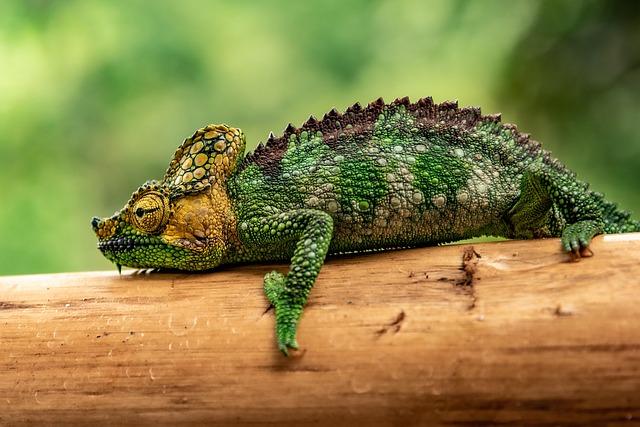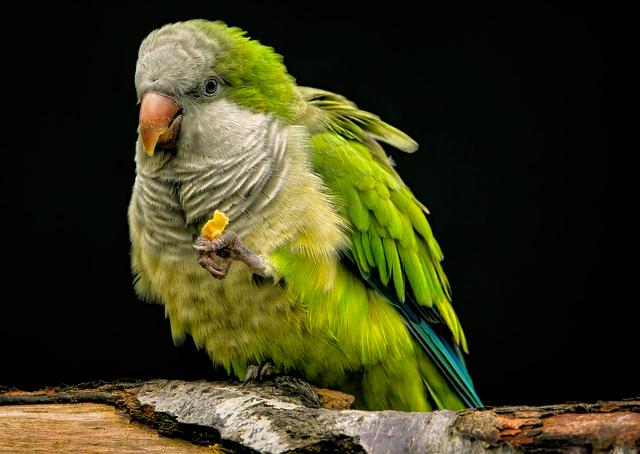- Introduction
- Choosing a Veterinarian for Exotic Pets
- Creating the Ideal Habitat
- Nutrition and Diet for Exotic Animals
- Social Needs of Exotic Pets
- Conclusion
- FAQs
- References
Introduction
Caring for exotic pets requires specialized knowledge and dedication. Unlike traditional pets, each exotic species comes with its own unique needs in terms of habitat, diet, and social interaction. This guide will cover essential aspects of caring for exotic pets, touching upon choosing a veterinarian, creating an ideal habitat, understanding nutrition, and addressing social needs.
Choosing a Veterinarian for Exotic Pets
When you decide to keep an exotic pet, securing a knowledgeable veterinarian is crucial for your pet's well-being

(Image: Pixabay/@mirkosajkov)
1. **Research and Referrals:** Start by seeking recommendations from other exotic pet owners. Online forums and specialized groups can yield valuable insights. Check for local veterinary colleges that may offer services or referrals to qualified practitioners.
2. **Check Qualifications:** Ensure that the veterinarian has experience and certifications related to exotic animals. Look for professionals who have undergone additional training in avian, reptile, or small mammal medicine.
3. **Visit the Facility:** Schedule a visit to the clinic to assess its cleanliness and equipment. This also allows you to gauge the vet's approach towards handling exotic pets. A good veterinarian should demonstrate patience and understanding when dealing with these animals.
4. **Discuss Care Requirements:** Prepare a list of questions regarding specific health issues related to your exotic pet. A competent veterinarian should be able to explain healthcare protocols, vaccinations, and preventive measures applicable to your pet’s species.
Creating the Ideal Habitat
An appropriate habitat is essential for your exotic pet's physical and mental health

(Image: Pixabay/@PaulsAdventures)
1. **Species-Specific Enclosure:** Research the specific space requirements for your exotic pet. For instance, reptiles often need terrariums designed with heating elements, while birds may require spacious aviaries that facilitate flight.
2. **Environmental Enrichment:** Incorporate objects and structures that reflect your pet’s natural habitat. For example, climbing branches for reptiles or hiding spots for small mammals foster exploration and reduce stress.
3. **Temperature and Humidity Control:** Maintaining the correct climate is critical. Use thermometers and hygrometers to monitor conditions regularly, adjusting heat sources or misting systems as needed to replicate your pet's natural environment.
4. **Regular Maintenance:** Hygiene plays a significant role in preventing diseases. Clean the enclosure routinely, replacing substrates and removing uneaten food or waste promptly. Consider organic, pet-safe cleaning supplies to maintain a healthy living space.
Nutrition and Diet for Exotic Animals

(Image: Pixabay/@ambquinn)
1. **Diet Composition:** Understand what constitutes a balanced diet for your exotic pet. Herbivores require leafy greens, while carnivores thrive on proteins. Research the specific dietary preferences of your pet to formulate appropriate meal plans.
2. **Supplementation:** Many exotic pets benefit from vitamin and mineral supplements. Consult your veterinarian to identify if your pet requires any specific supplements to prevent deficiencies.
3. **Freshness and Variety:** Always provide fresh foods and experiment with various items to encourage eating. Some exotic pets may require a mix of live insects and pre-packaged diets; making their meals varied helps improve their nutritional intake and keeps them interested in eating.
4. **Monitor Weight and Health:** Regularly assess your pet’s weight and overall health. Sudden weight loss or gain can indicate underlying health issues. Adjust their feeding regimen based on observed changes and seek veterinary guidance when necessary.
Social Needs of Exotic Pets
Many exotic pets have intricate social structures and require social interaction with their human caretakers or potential companions

(Image: Pixabay/@brixiv)
1. **Social Interaction:** Take the time to interact with your exotic pet daily. Observational behaviors—how they react to your presence—will guide you in knowing the right level of socialization they require.
2. **Group Living:** Some exotic animals thrive in groups or pairs. For instance, certain bird species or rodents enjoy the company of their kind, and keeping them alone can lead to loneliness and depression.
3. **Training and Enrichment:** Engage your pet through training exercises that include problem-solving or interactive toys. This not only strengthens your bond but also addresses any boredom they might feel within their habitat.
4. **Adjusting Interaction Levels:** Know that each species requires different levels of interaction. While parrots might adore constant companionship, reptiles often prefer a more solitary existence. Observe your pet’s behavior and adapt your interactions accordingly.
Conclusion
Caring for exotic pets involves a multifaceted approach, where understanding their specific needs is paramount. Choosing the right veterinarian, creating an appropriate habitat, ensuring balanced nutrition, and acknowledging their social needs are critical components that contribute to your pet's health and happiness. By investing time in proper care, you enrich not only their lives but also your experience as a responsible pet owner.
FAQs
How often should I take my exotic pet to the vet?
It’s recommended to schedule regular check-ups at least once a year, but specific advice may vary depending on the species and health condition of your pet.
What is the best diet for my exotic animal?
The best diet for your exotic animal varies according to their type. Research species-specific dietary needs and consulting with a veterinarian can help you understand the right nutrition plan.
How do I socialize with my exotic pet?
Socialization with exotic pets often includes daily interaction, gentle handling, and providing stimulation through play and environmental enrichment. Tailor your interaction based on your pet's species-specific social needs.
Can exotic pets live with other animals?
This depends largely on the species of both your exotic pet and the other animals involved. Always do thorough research and consider the temperament and natural behavior of these animals before introducing them.

